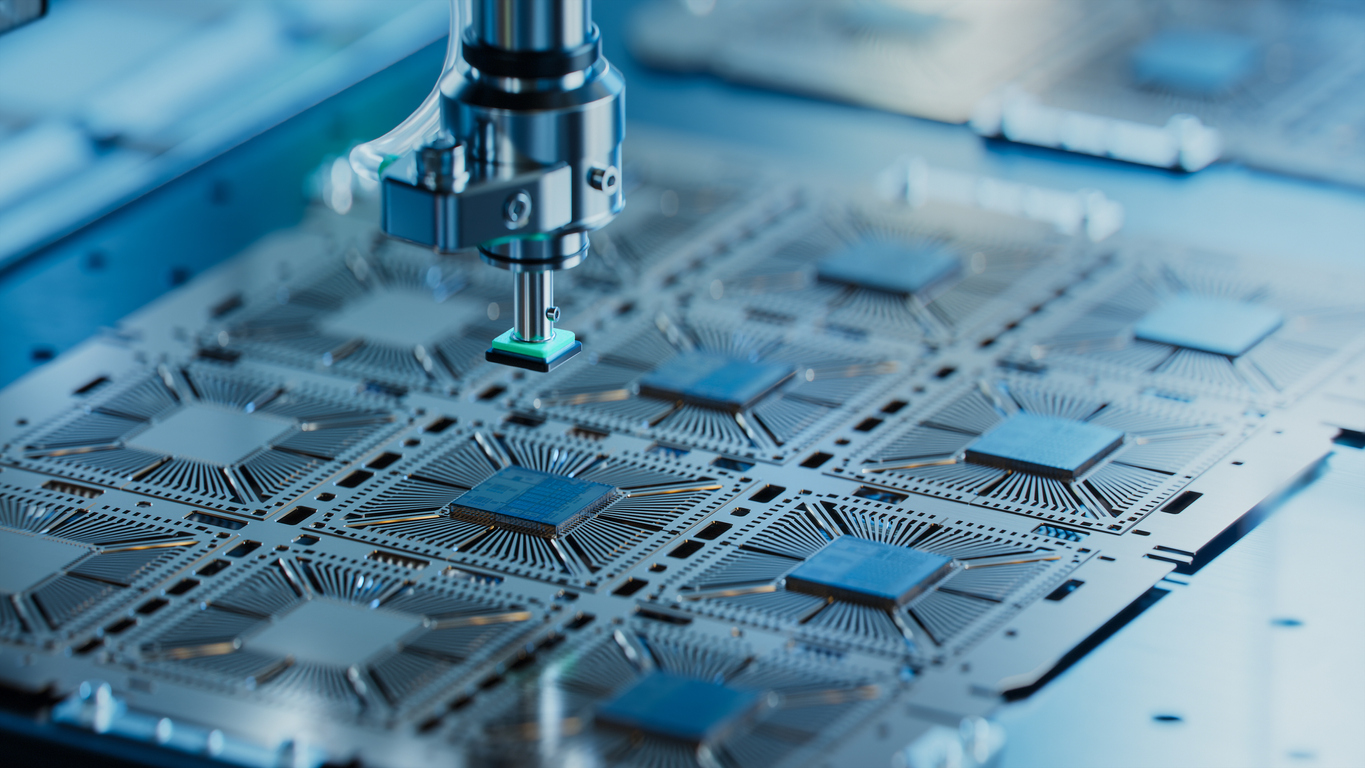In response to news that the Biden administration has directed $6.6 billion in subsidies to Taiwan Semiconductor Manufacturing Co’s (TSMC) Arizona subsidiary, as part of the U.S. CHIPS and Science Act, the American Economic Liberties Project released the following statement.
“TSMC, and its biggest customer Apple, are the primary contributors to the hollowing out of America’s semiconductor industry because it serves their business interests to thwart the rise of rivals elsewhere,” said Todd Achilles, an author of Economic Liberties’ CHIPS Implementation Paper and of UC Berkeley’s Goldman School of Public Policy. “TSMC controls more than 60% of global foundry revenues but more than 80% of profits. With loan guarantees and tax credits, we can expect American taxpayers to contribute over $20B to TSMC’s three Arizona-based fabs. The preliminary terms of this agreement include some reasonable commitments, such as ending anti-union activities. But fundamentally, this proposal changes none of the anti-competitive practices that TSMC and Apple use to block new entrants. Leading edge chip supply will remain brittle, mostly offshore and controlled by one dominant firm.”
As Economic Liberties laid out in a recent paper, for the past several decades, American chipmakers have shifted to a business model focused on using intellectual property to exclude rivals, avoiding expensive capital investments in direct chip fabrication, and prioritizing short-term financial returns. This model has resulted in a single Taiwanese firm, Taiwan Semiconductor Manufacturing Company (TSMC), dominating the fabrication of most advanced “leading-edge” logic chips. Faced with TSMC’s manufacturing monopoly, American firms have maintained their own margins by ruthlessly pursuing market power via exclusive deals, patent abuse, and anti-competitive acquisitions—with Apple, the largest buyer of chips, being one of the worst offenders.
To break this vicious cycle of monopoly, rent-seeking, and exclusive dealing in the leading-edge chip category, the paper recommends that the CHIPS Program Office (CPO) support new entrants with the goal of four independent leading-edge foundries with operations in the US (rather than simply subsidizing already-dominant firms in bringing production to the US). Other proposals include for the CPO and the Federal Trade Commission to adopt the “whole of government” approach and collaborate in allocating funding and establishing competition-related commitments for recipients, greater limitations on stock buybacks and dividends, and requirements to openly license semiconductor intellectual property with competitors.

 www.semiconductor-digest.com
www.semiconductor-digest.com
“TSMC, and its biggest customer Apple, are the primary contributors to the hollowing out of America’s semiconductor industry because it serves their business interests to thwart the rise of rivals elsewhere,” said Todd Achilles, an author of Economic Liberties’ CHIPS Implementation Paper and of UC Berkeley’s Goldman School of Public Policy. “TSMC controls more than 60% of global foundry revenues but more than 80% of profits. With loan guarantees and tax credits, we can expect American taxpayers to contribute over $20B to TSMC’s three Arizona-based fabs. The preliminary terms of this agreement include some reasonable commitments, such as ending anti-union activities. But fundamentally, this proposal changes none of the anti-competitive practices that TSMC and Apple use to block new entrants. Leading edge chip supply will remain brittle, mostly offshore and controlled by one dominant firm.”
As Economic Liberties laid out in a recent paper, for the past several decades, American chipmakers have shifted to a business model focused on using intellectual property to exclude rivals, avoiding expensive capital investments in direct chip fabrication, and prioritizing short-term financial returns. This model has resulted in a single Taiwanese firm, Taiwan Semiconductor Manufacturing Company (TSMC), dominating the fabrication of most advanced “leading-edge” logic chips. Faced with TSMC’s manufacturing monopoly, American firms have maintained their own margins by ruthlessly pursuing market power via exclusive deals, patent abuse, and anti-competitive acquisitions—with Apple, the largest buyer of chips, being one of the worst offenders.
To break this vicious cycle of monopoly, rent-seeking, and exclusive dealing in the leading-edge chip category, the paper recommends that the CHIPS Program Office (CPO) support new entrants with the goal of four independent leading-edge foundries with operations in the US (rather than simply subsidizing already-dominant firms in bringing production to the US). Other proposals include for the CPO and the Federal Trade Commission to adopt the “whole of government” approach and collaborate in allocating funding and establishing competition-related commitments for recipients, greater limitations on stock buybacks and dividends, and requirements to openly license semiconductor intellectual property with competitors.
$6.6 Billion in Subsidies to TSMC Won’t Fix Deep Market Structure Issues In Semiconductor Industry - Semiconductor Digest
In response to news that the Biden administration has directed $6.6 billion in subsidies to Taiwan Semiconductor Manufacturing Co’s (TSMC) Arizona subsidiary, as part of the U.S. CHIPS and Science Act, the American Economic Liberties Project released the following statement.


